Table of Contents Show
I. Introduction
Over the past few years, artificial intelligence (AI) has experienced an exponential rise, revolutionizing various industries and reshaping the way we live, work, and interact. With the rapid advancements in machine learning, natural language processing, computer vision, and robotics, AI has become a major driver of innovation and economic growth. As a result, there is an increasing demand for skilled professionals who can harness the potential of AI to create transformative solutions across a wide range of fields. Lets learn what are the AI based project ideas for final year students.
A. Significance of AI-based projects for final year students
AI based project ideas for final year students are those focused on AI in which this tech can provide them with invaluable practical experience and the opportunity to contribute to the ongoing development and progress in the field. AI-based projects can help students to develop critical skills, such as problem-solving, programming, data analysis, and project management. By working on AI-based projects, final year students can demonstrate their proficiency in AI, making them more competitive in the job market and preparing them for successful careers in academia or the industry.
B. Importance of practical experience in AI
Practical experience in AI is essential for students to bridge the gap between theoretical knowledge and real-world applications. By working on AI-based projects, students can gain hands-on experience in developing, implementing, and optimizing AI algorithms and systems. This experience allows students to develop a deeper understanding of AI concepts, refine their programming skills, and learn how to tackle complex challenges in the field. Practical experience in AI can also help students build a strong portfolio, showcasing their skills and accomplishments to potential employers and collaborators. Because of such benefits, inventing Artificial intelligence is inevitable.
II. AI Project ideas for Final year in Healthcare
A. Disease prediction and diagnosis
AI-powered disease prediction and diagnosis systems can analyze vast amounts of medical data to identify patterns and make accurate predictions about a patient’s health. Final year students can work on projects that focus on developing machine learning models for early detection and diagnosis of various diseases, such as cancer, diabetes, or cardiovascular disorders. These projects can involve working with medical imaging data, electronic health records, or genomic data to improve patient outcomes and reduce healthcare costs.
B. AI-driven mental health chatbots
Mental health chatbots powered by AI can provide real-time support and resources to individuals experiencing mental health issues. Students can work on projects that involve designing and developing chatbots that use natural language processing and sentiment analysis to understand and respond to user input effectively. These chatbots can help users manage stress, anxiety, depression, or other mental health concerns by offering personalized advice, coping strategies, and resources.
C. AI-powered prosthetics
AI-powered prosthetics can improve the lives of amputees by providing them with more natural and intuitive control over their prosthetic limbs. Students can work on projects that involve developing AI algorithms for controlling prosthetic devices using machine learning and signal processing techniques. These projects can focus on enhancing the functionality and usability of prosthetic limbs by enabling better coordination, responsiveness, and adaptability to the user’s needs and environment.
D. Drug discovery and development
AI-driven drug discovery and development projects can help accelerate the process of identifying and testing new therapeutic compounds. Final year students can work on projects that involve using machine learning techniques, such as deep learning and reinforcement learning, to predict the properties and potential effectiveness of new drug candidates. These projects can also involve developing AI-based tools for optimizing drug formulations, predicting drug side effects, and identifying potential drug repurposing opportunities.
III. AI Project ideas for Final year in Education
A. Intelligent tutoring systems
Intelligent tutoring systems leverage AI to provide personalized learning experiences for students. Final year students can work on projects that involve developing AI-driven tutoring systems capable of adapting to individual learners’ needs, learning styles, and progress. These projects can focus on designing algorithms that analyze students’ performance, identify knowledge gaps, and provide tailored feedback and recommendations to enhance learning outcomes.
B. AI-driven plagiarism detection
AI-powered plagiarism detection tools can efficiently identify instances of academic dishonesty by analyzing and comparing large volumes of text data. Students can work on projects that involve developing sophisticated natural language processing algorithms and machine learning models to detect plagiarism in written assignments, research papers, or other academic works. These projects can help improve the accuracy and reliability of plagiarism detection systems while reducing the time and effort required for manual reviews.
C. AI-based personalized learning paths
AI-based personalized learning paths use machine learning to create individualized learning plans for students, taking into account their strengths, weaknesses, and interests. Final year students can work on projects that focus on developing AI algorithms to analyze student data, such as learning history, assessment results, and engagement metrics, to generate customized learning paths that optimize the educational experience for each learner.
D. Automated grading and feedback systems
AI-driven automated grading and feedback systems can streamline the evaluation process and provide timely, personalized feedback to students. Projects in this area can involve developing AI models that can accurately assess students’ work in various formats, such as essays, multiple-choice questions, or programming assignments. By incorporating natural language processing and machine learning techniques, these projects can improve the efficiency of the grading process and provide more consistent and objective evaluations, enabling educators to focus on more high-level teaching tasks.
IV. AI Project ideas for Final year in Agriculture
A. Precision farming using AI
Precision farming uses AI to optimize agricultural practices, enhance productivity, and minimize environmental impacts. Final year students can work on projects that involve developing AI algorithms and systems for various aspects of precision farming, such as soil analysis, crop monitoring, and irrigation management. These projects can help farmers make data-driven decisions to maximize crop yields, reduce resource waste, and improve overall farm efficiency.
B. Crop disease detection and management
AI-driven crop disease detection and management systems can help farmers identify and address plant diseases more effectively. Students can work on projects that involve developing machine learning models and computer vision algorithms to detect and diagnose crop diseases using images captured by drones or other remote sensing devices. These projects can contribute to the development of more robust, accurate, and timely disease detection systems, allowing farmers to take appropriate actions to protect their crops and minimize yield losses.
C. AI-powered yield prediction models
Accurate yield predictions are essential for effective farm management and planning. AI-based yield prediction models can analyze various factors, such as weather data, soil conditions, and crop growth patterns, to provide more precise estimates of crop yields. Final year students can work on projects that involve developing machine learning algorithms and data analysis techniques to improve the accuracy and reliability of yield prediction models, helping farmers make better-informed decisions and optimize their agricultural practices.
D. Autonomous agricultural drones
Autonomous agricultural drones use AI to perform various tasks in the field, such as crop monitoring, pesticide application, and data collection. Students can work on projects that involve developing AI algorithms and control systems for drone navigation, obstacle avoidance, and task execution. These projects can contribute to the advancement of autonomous drone technology, making agricultural operations more efficient, cost-effective, and environmentally friendly.
V. AI Project ideas for Final year in Finance
A. AI-driven fraud detection systems
AI-driven fraud detection systems can help financial institutions identify and prevent fraudulent activities more effectively. Final year students can work on projects that involve developing machine learning models and data analysis techniques to detect anomalies, suspicious patterns, and other indicators of fraud in financial transactions. These projects can contribute to developing more robust, accurate, and timely fraud detection systems, protecting consumers and businesses from financial losses.AI is also helping Crypto trading.
B. AI-powered credit scoring algorithms
AI-powered credit scoring algorithms can provide more accurate and unbiased assessments of borrowers’ creditworthiness by considering a wide range of factors, including alternative data sources. Students can work on projects that involve developing machine learning models to analyze financial data, social media activity, and other relevant information to generate credit scores. These projects can help improve the fairness and efficiency of the credit evaluation process, enabling more people to access financial services and products.
C. AI-based financial planning assistants
AI-based financial planning assistants can help individuals make better financial decisions by providing personalized advice and recommendations based on their unique financial circumstances. Students can work on projects that involve developing AI algorithms and natural language processing techniques to analyze users’ financial data, goals, and preferences, and generate customized financial plans and investment strategies. These projects can contribute to the development of more user-friendly and effective financial planning tools, promoting financial literacy and well-being.
D. AI-enabled sentiment analysis for stock market predictions
AI is already revolutionizing the Banking system. AI-enabled sentiment analysis can help investors make more informed decisions by analyzing market sentiment from various data sources, such as news articles, social media posts, and earnings reports. Final year students can work on projects that involve developing natural language processing algorithms and machine learning models to identify and quantify market sentiment, and predict stock price movements. These projects can contribute to the development of more sophisticated and accurate stock market prediction tools, helping investors maximize their returns and manage risks.
VI. AI Project ideas for Final year in Smart Cities
A. AI-based traffic management systems
AI-based traffic management systems can optimize traffic flow, reduce congestion, and improve overall transportation efficiency in urban areas. Students can work on projects that involve developing AI algorithms and data analysis techniques to analyze real-time traffic data, predict traffic patterns, and adjust traffic signals accordingly. These projects can contribute to the development of smarter, more responsive traffic management systems, improving urban mobility and reducing the environmental impact of transportation.
B. AI-driven waste management optimization
AI-driven waste management optimization projects can help cities better manage waste collection and disposal, reducing environmental pollution and improving public health. Students can work on projects that involve developing machine learning models to predict waste generation patterns, optimize collection routes, and identify waste reduction and recycling opportunities. These projects can contribute to the development of more efficient and sustainable waste management practices in urban areas.
C. AI-powered energy management and conservation
AI-powered energy management and conservation systems can help cities reduce energy consumption, lower greenhouse gas emissions, and optimize the use of renewable energy sources. Final year students can work on projects that involve developing AI algorithms and machine learning models to analyze energy consumption patterns, predict energy demand, and optimize the operation of energy systems, such as smart grids and renewable energy installations. These projects can contribute to the development of more sustainable and efficient energy management solutions for urban environments.
D. AI-enabled crime prediction and prevention
AI-enabled crime prediction and prevention systems can help law enforcement agencies identify and address potential criminal activities more effectively. Students can work on projects that involve developing machine learning models and data analysis techniques to analyze historical crime data, social media activity, and other relevant information to predict crime hotspots and identify potential threats. These projects can contribute to the development of more proactive and targeted crime prevention strategies, improving public safety and security in urban areas.
VII. AI-Based Projects in Natural Language Processing
A. AI-powered language translation systems
AI-powered language translation systems can break down language barriers and enable more effective communication between people from different linguistic backgrounds. Final year students can work on projects that involve developing advanced machine learning models, such as neural networks and transformer architectures, to improve the accuracy and fluency of automated translations. These projects can contribute to the development of more robust, efficient, and versatile language translation tools.
B. AI-driven sentiment analysis for customer reviews
AI-driven sentiment analysis can help businesses gain insights into customer opinions and preferences by analyzing customer reviews and feedback. Students can work on projects that involve developing natural language processing algorithms and machine learning models to identify and quantify sentiment in customer reviews. These projects can help businesses better understand their customers, improve their products and services, and make more informed decisions.
C. AI-enabled chatbots for customer support
AI-enabled chatbots can revolutionize customer support by providing users quick, accurate, and personalized assistance. Students can work on projects that involve developing natural language processing algorithms and machine learning models to enable chatbots to understand and respond to user inquiries effectively. These projects can contribute to the development of more user-friendly and efficient customer support tools, enhancing the overall customer experience.
D. AI-based content generation and summarization
AI-based content generation and summarization tools can help users create and digest information more efficiently. Final year students can work on projects that involve developing advanced natural language processing algorithms and machine learning models for generating high-quality text content or summarizing lengthy documents accurately. These projects can contribute to the development of more sophisticated and versatile content generation and summarization tools, improving productivity and information accessibility.
VIII. AI-Based Projects in Computer Vision
A. AI-driven facial recognition systems
When we talk about AI based project ideas for final year students, Computer vision is something that comes first in mind. AI-driven facial recognition systems have numerous applications, ranging from security and surveillance to social media and entertainment. Students can work on projects that involve developing machine learning models and computer vision algorithms to improve the accuracy, efficiency, and robustness of facial recognition systems. These projects can contribute to the advancement of facial recognition technology and address potential privacy and ethical concerns.
B. AI-powered object detection and tracking
This field is getting trendy with the rise of Artificial General Intelligence. AI-powered object detection and tracking systems can have various applications, including autonomous vehicles, robotics, and video analytics. Final year students can work on projects that involve developing computer vision algorithms and machine learning models to detect and track objects in images and videos more accurately and efficiently. These projects can contribute to the development of more advanced and versatile object detection and tracking tools, enabling new applications and solutions.
C. AI-based image and video colorization
AI-based image and video colorization tools can automatically convert grayscale images and videos into color, enhancing the visual appeal and historical value of the content. Students can work on projects that involve developing machine learning models and computer vision algorithms to analyze and colorize grayscale images and videos more accurately and realistically. These projects can contribute to the development of more advanced and user-friendly colorization tools, preserving and revitalizing historical images and videos.
D. AI-enabled gesture recognition systems
AI-enabled gesture recognition systems can interpret human gestures, enabling more natural and intuitive interactions between humans and machines. Final year students can work on projects that involve developing computer vision algorithms and machine learning models to recognize and interpret gestures accurately and efficiently. These projects can contribute to the advancement of gesture recognition technology, enabling new applications in gaming, virtual and augmented reality, and assistive technologies.
IX. AI-Based Projects in Gaming and Entertainment
A. AI-driven game-level design and testing
AI-driven game-level design and testing can streamline the development process, enhance creativity, and improve overall game quality. Final-year students can work on projects that involve developing machine learning models and algorithms to generate and evaluate game levels automatically. These projects can contribute to the development of more innovative and engaging gaming experiences, reducing the time and effort required by game developers.
B. AI-powered music and art generation
AI-powered music and art generation can revolutionize the creative process by enabling the creation of unique and original content. Students can work on projects that involve developing advanced machine learning models, such as Generative adversarial networks (GANs) and transformers, to generate music, artwork, or other creative content. These projects can contribute to the advancement of AI-driven creative tools, broadening the possibilities for artistic expression and collaboration.
C. AI-based character animation and simulation
AI-based character animation and simulation can enhance realism and interactivity in video games and other digital media. Final year students can work on projects that involve developing machine learning models and algorithms to generate realistic character animations, behaviors, and interactions based on user input or environmental conditions. These projects can contribute to the development of more immersive and engaging virtual experiences, pushing the boundaries of digital storytelling and entertainment.
D. AI-enabled virtual and augmented reality experiences
Deep Fake technology is very useful in this. AI-enabled virtual and augmented reality experiences can provide more immersive and interactive environments, transforming the way people learn, work, and play. Students can work on projects that involve developing AI algorithms and computer vision techniques to enable more realistic and responsive virtual and augmented reality experiences. These projects can contribute to the advancement of AI-driven immersive technologies, enabling new applications and solutions in various fields.
X. AI project ideas for final year students in Robotics
A. AI-driven autonomous robot navigation
AI-driven autonomous robot navigation can enable robots to navigate complex environments more effectively and safely. Final year students can work on projects that involve developing machine learning models and algorithms to process sensor data, generate maps, and plan optimal paths for robots. These projects can contribute to the advancement of autonomous navigation technologies, with applications in fields such as autonomous vehicles, drones, and service robots.
B. AI-powered collaborative robots (cobots) for industrial applications
AI-powered collaborative robots, or cobots, can work alongside humans in various industrial settings, enhancing productivity and safety. Students can work on projects that involve developing AI algorithms and machine learning models to enable Cobots to learn from human operators, adapt to their environment, and perform tasks more efficiently. These projects can contribute to the development of more versatile and user-friendly cobots, promoting the adoption of robotics in various industries.
C. AI-based robotic assistants for elderly care
AI-based robotic assistants can help address the growing demand for elderly care services by providing support, companionship, and assistance with daily tasks. Final year students can work on projects that involve developing AI algorithms and natural language processing techniques to enable robots to understand and respond to the needs of elderly individuals. These projects can contribute to the development of more effective and empathetic robotic care solutions, improving the quality of life for older adults.
D. AI-enabled swarm robotics for search and rescue operations
AI-enabled swarm robotics can enhance search and rescue operations by enabling teams of robots to work together efficiently, covering large areas and communicating critical information. Students can work on projects that involve developing AI algorithms and machine learning models to coordinate the actions of multiple robots, allowing them to adapt to changing conditions and achieve common goals. These projects can contribute to the development of more effective and agile search and rescue solutions, potentially saving lives and resources.
E. AI-driven robotic exoskeletons for physical rehabilitation
AI-driven robotic exoskeletons can help individuals with physical disabilities or injuries regain mobility and independence. Final year students can work on projects that involve developing AI algorithms and machine learning models to control robotic exoskeletons, adapting to the user’s movements and providing targeted assistance. These projects can contribute to the development of more effective and personalized rehabilitation solutions, improving the quality of life for individuals with physical limitations.
XI. AI-Based Projects in Climate Change and Environmental Conservation
A. AI-powered climate prediction models
AI-powered climate prediction models can help researchers better understand and forecast the impacts of climate change, informing policy decisions and mitigation strategies. Students can work on projects that involve developing machine learning models and data analysis techniques to analyze historical climate data, predict future climate patterns, and assess potential impacts. These projects can contribute to the development of more accurate and comprehensive climate models, promoting more informed and effective climate action.
B. AI-driven wildlife monitoring and conservation
AI-driven wildlife monitoring and conservation projects can help protect endangered species and ecosystems by automating the detection, tracking, and analysis of wildlife populations. Final year students can work on projects that involve developing computer vision algorithms and machine learning models to analyze images and videos from remote cameras, drones, or satellites, identifying and tracking wildlife species. These projects can contribute to more efficient and effective conservation efforts, safeguarding biodiversity and ecosystems.
C. AI-based optimization of renewable energy resources
AI-based optimization of renewable energy resources can help maximize the efficiency and reliability of clean energy systems, accelerating the transition to sustainable energy sources. Students can work on projects that involve developing machine learning models and AI algorithms to predict renewable energy generation, optimize energy storage, and manage energy distribution. These projects can contribute to the development of more advanced and efficient renewable energy systems, supporting global efforts to combat climate change.
D. AI-enabled natural disaster prediction and management
AI-enabled natural disaster prediction and management can help communities better prepare for and respond to natural disasters, reducing their impacts and saving lives. Final year students can work on projects that involve developing machine learning models and AI algorithms to analyze data from various sources, such as satellite imagery, weather data, and social media, to predict and assess the risk of natural disasters. These projects can contribute to the development of more accurate and timely disaster prediction and response systems, enhancing the resilience of communities worldwide.
E. AI-powered environmental pollution detection and control
AI-powered environmental pollution detection and control projects can help monitor and manage pollution levels in air, water, and soil, protecting public health and the environment. Students can work on projects that involve developing machine learning models and computer vision algorithms to analyze data from sensors, satellites, or drones, detecting and quantifying pollution sources. These projects can contribute to the development of more effective and targeted pollution monitoring and management solutions, supporting global efforts to protect the environment and promote sustainable development.
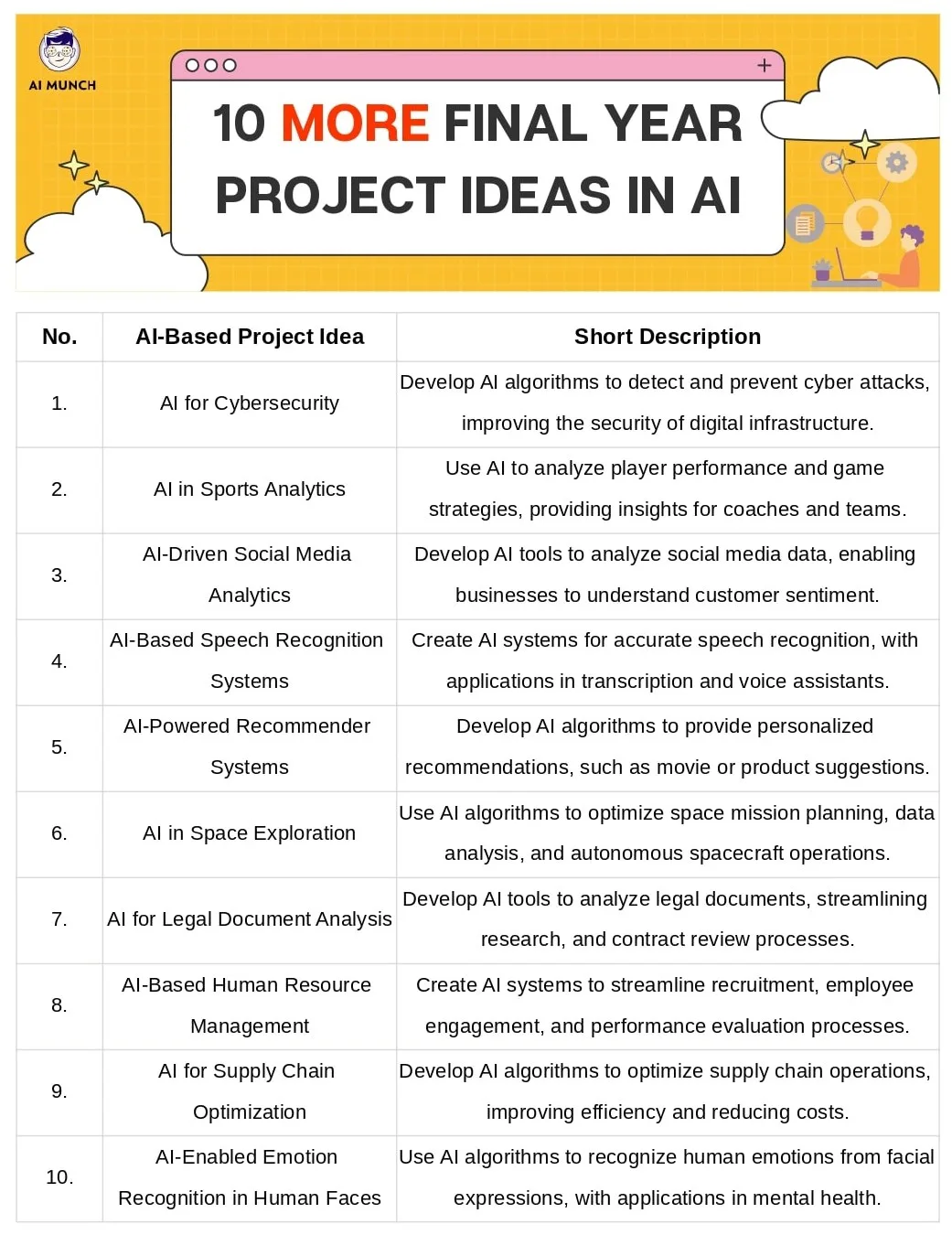
XII. Conclusion
AI-based projects offer immense potential for innovation and improvement across numerous fields, from healthcare and education to finance and gaming. By working on AI-based projects, final year students can develop valuable skills, contribute to advancing AI technologies, and positively impact society.
AI-based projects often involve interdisciplinary collaboration, bringing together students and professionals from diverse fields to tackle complex challenges. By participating in these projects, students can learn to collaborate effectively, broaden their perspectives, and develop a more comprehensive understanding of the challenges and opportunities presented by AI.
The Future of AI and its Implications for students
AI is affecting us in many ways. As AI continues to advance and become more integrated into various industries, students must develop a strong foundation in AI-related skills and concepts. By engaging in AI-based projects during their final year, students can prepare themselves for the rapidly changing job market and stay at the forefront of technological innovation. Ultimately, these projects can help shape the future of AI, empowering students to drive meaningful change in their chosen fields.
FAQs
The 5 stages of an AI project typically include:
a. Problem Definition: Identify a specific problem or challenge that can be addressed using AI techniques, and define the project’s objectives and scope.
b. Data Collection and Preparation: Gather relevant data from various sources and preprocess it, ensuring it is clean, accurate, and ready for analysis.
c. Model Development: Choose appropriate machine learning algorithms or AI techniques, and develop the AI model using the prepared data, adjusting parameters and features as needed.
d. Model Evaluation and Validation: Assess the performance of the AI model using appropriate evaluation metrics, comparing it to baseline models, and validating its effectiveness in addressing the defined problem.
e. Deployment and Maintenance: Deploy the AI model in a production environment, monitor its performance, and make necessary updates and improvements as needed.
a. Learn the basics of AI, machine learning, and programming languages such as Python, R, or Java.
b. Identify a problem or area of interest where AI can be applied.
c. Gather and preprocess the necessary data for your project.
d. Choose an appropriate AI technique or machine learning algorithm to address your problem.
e. Train, evaluate, and refine your AI model.
f. Deploy your model and monitor its performance.
AI ideas competitions are contests that encourage participants to develop innovative AI solutions for various challenges or problems. These competitions can be organized by academic institutions, private companies, or government agencies, and often provide cash prizes, mentorship, or networking opportunities for the winners.
a. AI in Healthcare: AI algorithms can analyze medical images and data to improve diagnostics, predict disease outcomes, and develop personalized treatment plans.
b. AI in Self-Driving Cars: AI systems can process sensor data, make decisions, and control autonomous vehicles, navigating complex traffic situations safely and efficiently.
c. AI in Customer Service: AI-powered chatbots can understand and respond to customer inquiries, providing efficient and personalized support.
One of the biggest AI competitions in the world is the annual Neural Information Processing Systems (NeurIPS) conference’s competitions. NeurIPS is a leading AI research conference that hosts various AI and machine learning competitions, attracting top researchers, students, and professionals from around the world. These competitions often focus on cutting-edge AI challenges and offer the winners significant prizes, recognition, and networking opportunities.
Do you want to read more? Check out these articles.
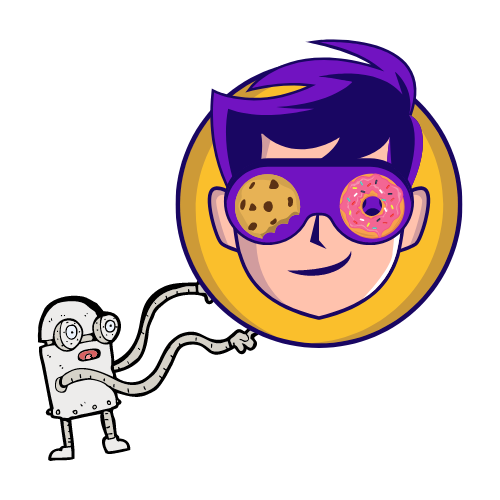


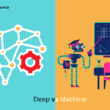
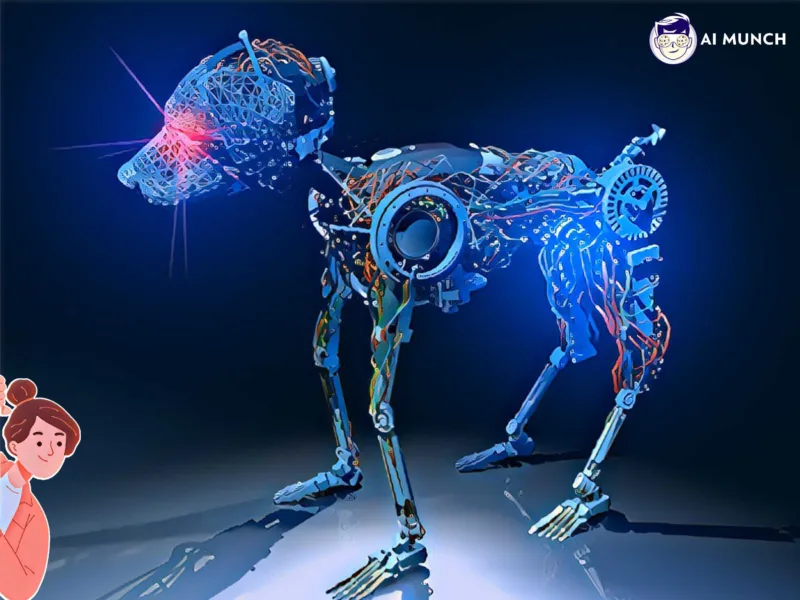


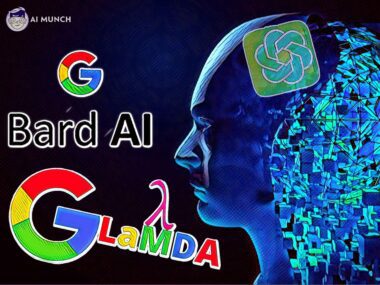
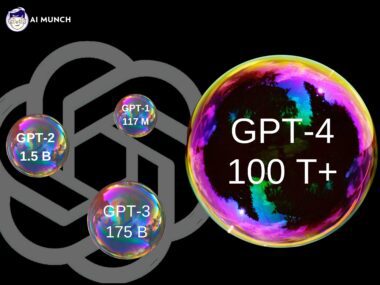


This is such a great resource for graduating students who are interested in the field of AI. Thank you for sharing!
Knowledge should be shared….Thanks 🙂
Высококачественные Услуги Клининга от Профессионалов
клининг москва https://klining-v-moskve1.ru/.
Перевозка груза быстро и эффективно с помощью профессиональных грузчиков
сколько стоит грузчик в час http://www.pereezdpnz.ru/.
Ваша мечта о совершенном доме каждый день
уборка квартиры после ремонта http://www.klining-spb1.ru/uborka-kvartir/uborka-posle-remonta.